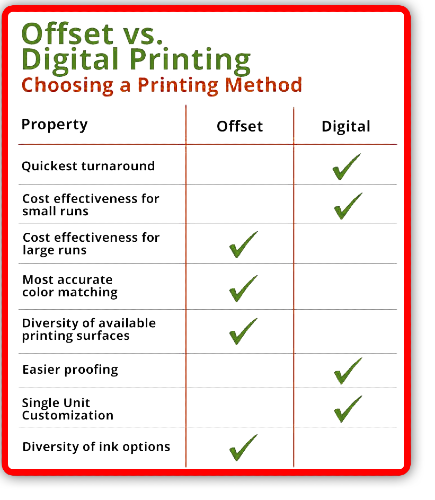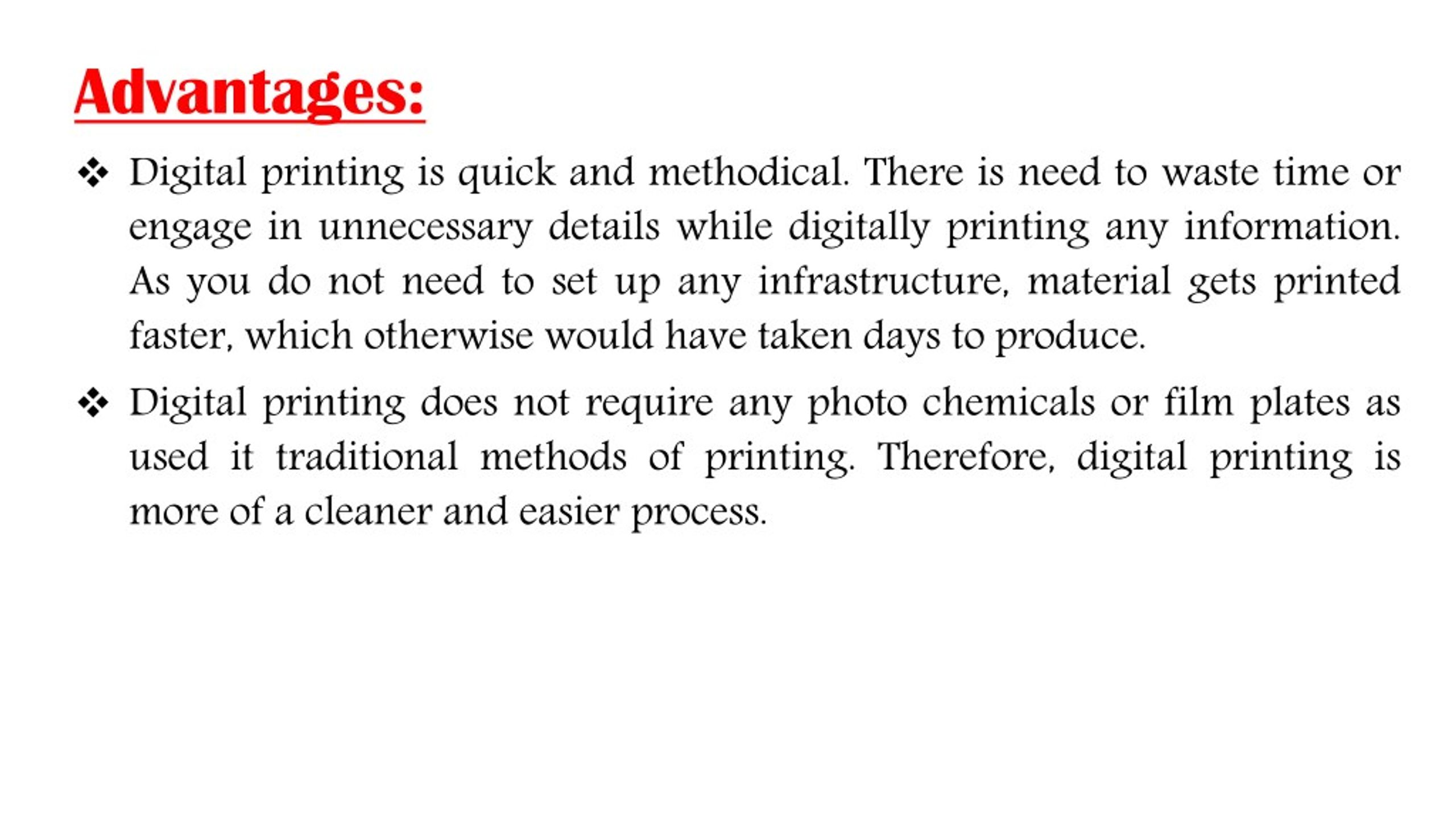Digital Printing - An Overview
Table of ContentsWhat Does Digital Printing Do?Excitement About Digital PrintingMore About Digital PrintingGetting My Digital Printing To WorkWhat Does Digital Printing Do?
Unlike typical offset printing, which depends on mechanical procedures, electronic printing uses advanced technology to produce high-quality prints. One of the vital advantages of electronic printing is its.The liquid ink or toner adheres equally to the paper surface, causing vibrant and true-to-life shades. Uniformity is an additional considerable advantage offered by electronic printing. Unlike countered printing, where variants can happen due to factors like plate wear and ink thickness changes, digital printers constantly provide high-grade prints from the initial web page to the last.
Moreover, digital printing enables greater flexibility in regards to customization and personalization. With variable data printing capabilities, each printed piece can be customized independently with unique message, images, or designs without sacrificing high quality. Digital Printing. This degree of modification opens up new possibilities for targeted marketing projects and customized communication with consumers

How Digital Printing can Save You Time, Stress, and Money.
With digital printing, each print is created independently based on need. Conventional countered printing needs considerable setup time prior to manufacturing can start.
In contrast, electronic printing has marginal setup needs. The process involves moving digital documents straight to the printer without the need for plate prep work or color adjustments.
Digital printers utilize environmentally friendly inks and toners that have reduced degrees of volatile organic substances (VOCs) compared to traditional offset inks. VOCs are chemicals that add to air contamination when launched into the atmosphere. Along with having lower VOC web content, many digital printers also utilize water-based inks rather than oil-based ones located in countered printers.
The 9-Minute Rule for Digital Printing
Using environmentally friendly inks and printer toners in digital printing ensures that the printing procedure has a minimized impact on air high quality and advertises a healthier working setting for printers and print store employees. Finally, electronic printing offers many benefits over conventional balanced out click reference printing (Digital Printing). It is a cost-effective solution that allows businesses to save cash on printing expenditures
The faster turn-around times offered by digital printing give companies the chance to satisfy limited target dates and react quickly to market demands. Among the essential benefits of digital printing is its better flexibility and personalization alternatives. This allows businesses to tailor their printed products according to their distinct needs and choices.
A: Digital printing provides faster turnaround times since it requires minimal arrangement and prep work compared to offset printers. A: Yes, electronic printing is a lot more eco-friendly than countered printing as it lowers waste and removes the demand for chemicals generally made use of in traditional techniques.
Welcome the benefits of electronic printing today and unlock its potential to boost your marketing initiatives. Note: The over conclusion section has actually been created adhering to the look at this now offered guidelines for a professional verdict on electronic printing machine. Please note that some asked for writing styles, such as jargon, idioms, or colloquial language, might not be appropriate in this context.
6 Easy Facts About Digital Printing Described
Offset and digital printing are both most famous printing techniques for layout jobs. The distinctions between them are wide-ranging, from versatility and waste to the expense ratio of longer or shorter manufacturing runs. Traditional countered printing and digital printing are valuable approaches, each has advantages and negative aspects. Choosing the much better printing process will eventually depend on your task's certain requirements.

The devices's set-up costs are high initially, additional systems end up being fairly much less pricey as the amount increases. Countered printing enables a large range of print materials to be used during manufacturing. It allows the printer to utilize various paper types, custom surfaces, and different inks. The high-grade images produced via offset printing make it the favored method, specifically among click over here graphic developers, when seeking the best shade recreation, detail, and professional-looking prints.
Indicators on Digital Printing You Should Know
For electronic inkjet printing, ink is transferred straight onto the surface. Rather than depending on aluminum plates and rubber coverings to transfer an image, electronic printing uses liquid ink during manufacturing.
